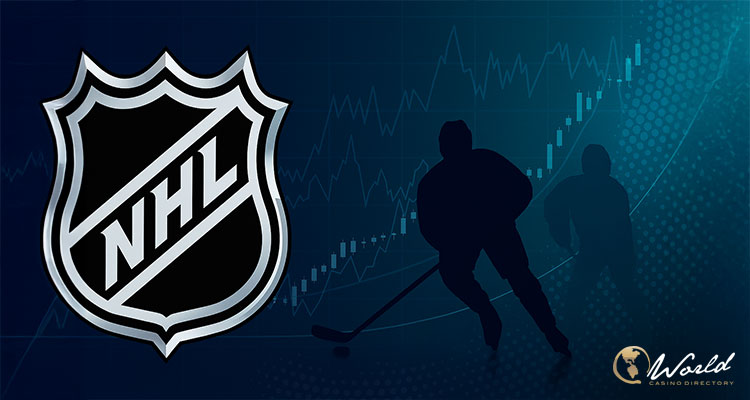The National Hockey League (NHL) is venturing into new territory, officially partnering with prediction market platforms Kalshi and Polymarket. The multiyear agreements, revealed Wednesday, mark the first time a major U.S. professional sports league has collaborated with prediction market companies—signaling a pivotal shift in the evolving relationship between sports and speculative markets.
Both Kalshi and Polymarket operate under the supervision of the U.S. Commodity Futures Trading Commission (CFTC), which enables them to offer event-based trading nationwide. This federal oversight allows the platforms to function in all 50 states, including those where sports betting remains illegal, such as California and Texas. Unlike sportsbooks like DraftKings or FanDuel, prediction markets allow users to trade on the outcomes of various events—ranging from sports championships to entertainment and political contests—by buying and selling contracts that pay out based on yes-or-no results.
Under the terms of the deal, Kalshi and Polymarket gain access to official NHL data and permission to use league trademarks, logos, and official designations across their platforms. The partnerships also extend to the companies’ brokers and merchants, who will be able to display NHL branding on their products.
Keith Wachtel, president of NHL Business, said the collaboration represents an opportunity to engage fans in innovative ways. “As prediction markets continue to evolve at a rapid pace, partnering with the two market leaders, Kalshi and Polymarket, provides a tremendous opportunity for the broadest fan engagement during the NHL season,” Wachtel explained, according to ESPN. “Polymarket and Kalshi are ideal partners as this category continues to grow and expand.”
Brand Visibility and Broadcast Integration
Both prediction markets are set to receive prominent exposure during marquee NHL events. Their branding will appear through Digitally Enhanced Dasherboards and virtual blue line signage during nationally televised games, including the Winter Classic, the Stadium Series, and the Stanley Cup Playoffs. The exposure underscores the NHL’s growing emphasis on expanding its digital engagement strategy.
Following the announcement, Kalshi prominently featured an NHL market on its homepage, inviting users to trade contracts predicting the 2026 Stanley Cup champion. Trading activity for that contract exceeded $980,000 within hours, with the Carolina Hurricanes and Edmonton Oilers emerging as co-favorites. Meanwhile, Polymarket saw robust activity tied to NHL matchups, including more than $683,000 in trading volume for a Canadian faceoff between Montreal and Calgary.
“The NHL has always been about giving fans an incredible experience,” said Polymarket CEO Shayne Coplan. “We’re excited to bring that energy to Polymarket, where fans can engage with the NHL and its teams in a new way.”
Prediction Markets Face Regulatory Hurdles
While the NHL’s move represents a major endorsement of prediction markets, the sector continues to face scrutiny. Kalshi is currently involved in litigation across several states, including Ohio, California, and Massachusetts, where regulators argue that its event contracts resemble unlicensed sports wagers. Kalshi contends that its products fall under federal—not state—jurisdiction and are lawfully regulated by the CFTC.
Kalshi CEO Tarek Mansour views the NHL partnership as a validation of the company’s legitimacy. “Teaming up with the NHL is an important milestone for Kalshi and the industry at large,” Mansour said. “To have a league like the NHL embrace Kalshi is a testament to the integrity, safety and trust with consumers that Kalshi has spent years building during our time pioneering this asset class. It should be clear now—prediction markets are here to stay.”
Mixed Reactions Across the Sports Landscape
While the NHL has embraced prediction markets, other leagues remain cautious. The NBA, NFL, and MLB have each raised concerns about the potential for integrity risks and the lack of state-level oversight. The NFL has even barred players and employees from trading on event contracts, citing parallels to prohibited sports betting activity. MLB has called for the CFTC to establish an “integrity framework” to ensure proper consumer protections.
Despite such reservations, the NHL maintains that its partnership can strengthen oversight rather than weaken it. Wachtel told ESPN that collaborating with Kalshi and Polymarket enables the league to monitor which markets are created, helping preserve the integrity of the sport. “As a league, we’ll be able to work with them on what markets they include in their endeavors,” he said. “That is much better for all of us—not just for the NHL, but all sports properties.”
However, not everyone sees the deal positively. The American Gaming Association (AGA) labeled the NHL’s move “deeply concerning.” AGA president and CEO Bill Miller criticized the partnerships, calling them “backdoor gambling schemes masquerading as ‘financial products.’” He added, “This move sends a troubling message: that integrity, responsibility, and clear legality are optional in sports gaming.”
A Growing Frontier for Fan Engagement
The partnerships come amid rising corporate interest in prediction markets. Earlier this month, Intercontinental Exchange, the parent company of the New York Stock Exchange, announced a $2 billion investment in Polymarket to boost its U.S. footprint and credibility. DraftKings has also made moves toward entering the space with its acquisition of Railbird Technologies, signaling a broader trend toward convergence between prediction markets and traditional sportsbooks.
As the first U.S. league to formally endorse the sector, the NHL’s decision could set a precedent for how other professional leagues approach the fast-evolving world of event-based trading. Whether viewed as a bold innovation or a regulatory gamble, the NHL’s foray into prediction markets marks a historic moment in the fusion of sports, finance, and fan engagement.



